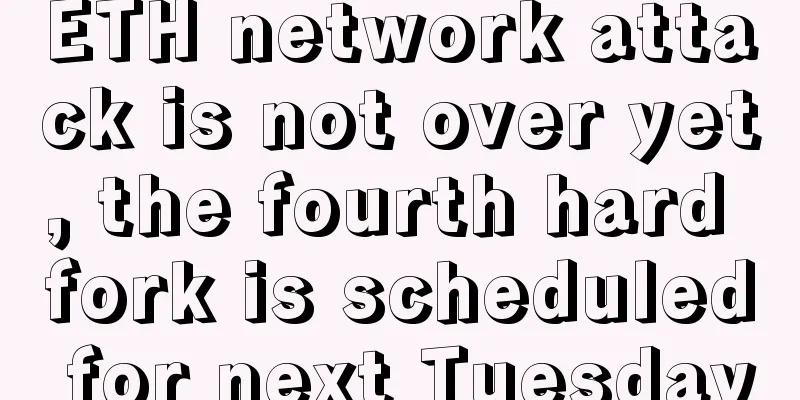The first batch of blockchain master's students successfully completed their studies and are about to take on industry challenges

|
This year, a new group of digital currency experts are ready to take on the challenges facing the industry and propose solutions. Most importantly, they are so authoritative because they are the first batch of graduate students ever to graduate from digital currency courses. The first batch of official blockchain graduate students Thursday, June 30, 2016, marked the graduation of the first Master of Digital Currency at the University of Nicosia. They are the first graduates in the world to learn about Bitcoin and decentralized blockchain technology. This master's program, offered by the University of Nicosia's School of Business, provides students with cutting-edge research, mindset, tools, and practical techniques to help them become cutting-edge experts in the fields of financial technology and computing. This way, students will be able to transform their existing business and become more valuable employees by completing this course, or start a new innovative startup in the field of decentralized digital currency and blockchain. In addition, the course is highly supported and a student scholarship of up to 300,000 euros has been established for this purpose. The course is considered promising. The University of Nicosia was the first university in the world to accept Bitcoin as payment for tuition fees in 2013 and has now completed a full postgraduate course. The 15 students in the 16th class come from 9 different countries with different cultural backgrounds. They also study a wide range of majors, such as computer science, political science, financial technology, financial and professional services, trade, consulting and entrepreneurship, etc. Some of them have already obtained a doctorate degree before joining this course. Caleb Chen, one of the 15 graduates, believes that digital currencies will one day play a major role in world affairs. He also believes that digital currency education will become necessary. Chen further elaborated on the issue: “The spread of digital currencies is gradually changing the world for the better, and it will eventually allow individuals to take back their privacy and autonomy. Digital currency education will become more common, and the University of Nicosia is a pioneer in this field.” As part of their education, these students are expected to pass a rigorous, continually updated curriculum taught by experts in the field. The students learn how decentralized currencies and decentralized ledger architectures work, and they will have more exposure to international finance, banking, and regulation. Then, they will choose between majors in programming or non-programming. The elective programming courses include "Security of Cryptographic Systems" and "Programming of Digital Currency". Non-programming students can choose to learn more about how digital currencies affect the development of the world and how digital currencies serve alternative investments and markets. Digital Currency Platform Systems is also available as a non-programming elective. Students have finally completed their studies and can now choose to pursue employment or move on to higher research goals. |
<<: VISA Europe is more interested in blockchain technology than Bitcoin
Recommend
The dispute over the authenticity of Satoshi Nakamoto caused by $5 billion: Dave Kleiman is a warrior facing a bleak life
In the past two days, Craig Wright, the Australia...
How to see the marriage status from the marriage line in palmistry
The marriage line represents the quality of your ...
Physiognomy tells you what kind of woman is the most unfortunate
Our facial features contain all kinds of informat...
The flood season is approaching, but Chinese miners will face greater pressure from regulation and power shortages
Wu said author | Colin Wu Editor of this issue | ...
Bitcoin prices are rising “with fear”
The price of Bitcoin has been pulled to a new hig...
Türkiye restricts the use of cryptocurrencies and adds crypto platforms to terror financing watchdog
According to BlockBeats, the Central Bank of Turk...
Interpretation of FilecoinPlus's 10x computing power plan: The "mining machine bubble" will be squeezed again
Yesterday, Filecoin officials held an online disc...
Palmistry Diagram: What Palmistry Can Make You Rich
Money has been very important from ancient times ...
Bitcoin's return in 2017 was 60 times that of the S&P 500
Bitcoin hit a record high of $4,483.55 yesterday,...
Five facial features that will bring good luck in 2015
After the frenzy, passion and pride of 2014, 2015...
Two dark horses emerge in the stablecoin market: USDC and UST
CoinGecko data shows that as of March 4, the tota...
The face of a woman who is not destined to be with a rich man
The face of a woman who is not destined to be wit...
How can a woman with a mole on the corner of her eye cause conflicts in her relationship with her husband?
It is generally difficult for a couple to maintai...
How to tell the character of a person with a hooked nose? What does a person with good character look like?
A hooked nose refers to a person whose nose bridg...
What is the sign of red forehead? Face analysis of red forehead
A red forehead can also mean good things are happ...









